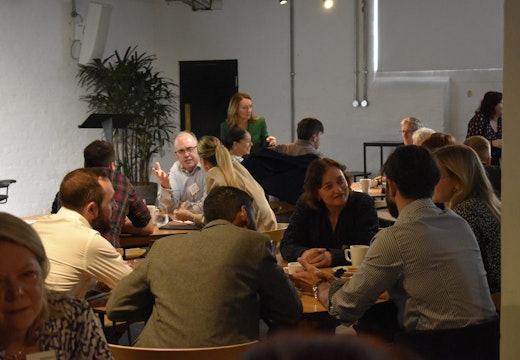Human-centric innovation leads Toronto’s future of work discussions
With rapid advancements in workplace technology and a shift toward employee-centred spaces, the latest WORKTECH Toronto conference laid out a vision for resilient and inclusive workplaces
Toronto is embracing a forward-thinking approach to the future of work. The city quickly pivoted to the demands and opportunities of hybrid and remote work while leveraging its position as a strategic hub for a range of industries. This dynamic city has demonstrated remarkable resilience in the post-pandemic era, with total employment in Toronto growing by 50,690 jobs in 2023, compared to 33,080 jobs between 2021 and 2022.
This resilience is reflected in Toronto’s architectural landscape, where sustainable design and green technology are taking centre stage. The city’s skyline continues to evolve with ambitious projects like One Pinnacle Yonge and the Mirvish+Gehry towers, signalling Toronto’s commitment to ongoing innovation and sustainable growth.
These themes were explored in the recent WORKTECH Toronto conference held on 17 October at the Ontario Teacher’s Pension Plan’s offices. Attendees at the conference gathered to discuss forward-looking initiatives facing the future of work in Canada. Here’s three key learnings from the event:
Workplaces with purpose
The shift to hybrid and remote models of working has been largely accepted in Toronto, with many companies cementing this flexibility in clearly established hybrid work policies. This trend has allowed companies in the area to attract talent from outside of Toronto’s centre, bringing fresh perspectives into the mix. Representatives from TD Bank shared examples about how the company is setting the standard for inclusivity through its Diversity, Equity and Inclusion (DEI) strategy, emphasising the importance of this approach to build a culture of inclusivity and belonging.
To create a culture of belonging, TD Bank highlighted the importance of embedding intentionality and purpose in the workplace. The bank strategically recruit talent from communities, and intentionally foster a culture of inclusion by designing consistent and equitable experiences for employees.
Empowerment at work
Toronto’s academic institutions are increasingly collaborating with industries to provide expert knowledge and talent. In the keynote speech at WORKTECH Toronto, Professor John Trougakos from the University of Toronto argued that ‘the new world of work is all about empowerment.’ Presenting research from his study published in the Journal of Applied Psychology in 2023, Trougakos found critical challenges, such as emotional exhaustion across the workday, are a barrier for employees today.
‘Positive socialisation with coworkers reduces the rate of emotional exhaustion…’
A key takeaway from the study was that positive socialisation with coworkers as well as strong levels of supervisory support were able to reduce the rate of emotional exhaustion throughout the day. Similarly, higher levels of prior evening detachment – being able to get away from work and properly switch off – lead to lower emotional exhaustion levels at the start of the day. In the era of hybrid and flexible work, having the ability to properly switch off from work is increasingly difficult, but Trougakos suggests the key to this lies with increased autonomy for employees.
The digital shift
Toronto has become a major tech hub in North America, with demand for tech talent expected to increase. In a panel that discussed the latest trends in technology innovation, Director of Corporate Real Estate and Analytics at the Bank of Montreal (BMO) Jeff Tso spoke to the importance of security access and visitor experience when it comes to the workplace. Whereas privacy and security must come first when it comes to employee data, educating employees on why you are tracking particular data and then being able to show concrete results can be really beneficial in creating a high value proposition.
Cisco’s Americas hybrid work leader Bob Cicero also placed emphasis on user centricity when implementing new technologies. Addressing questions around futureproofing workplaces, Bob explained that having a digital mindset when it comes to design is increasingly important. Creating optimal work environments that make use of cutting-edge technologies should also bring in neurodiverse needs when aligning around design principals.
Both Toronto’s real estate landscape and its focus on DEI and sustainability initiatives are evolving, and offices are being reimagined to suit hybrid work needs and flexibility policies. WORKTECH Toronto 2024 highlighted that the future of work in the city will be marked by innovation, sustainability and a commitment to creating inclusive and welcoming environments.








